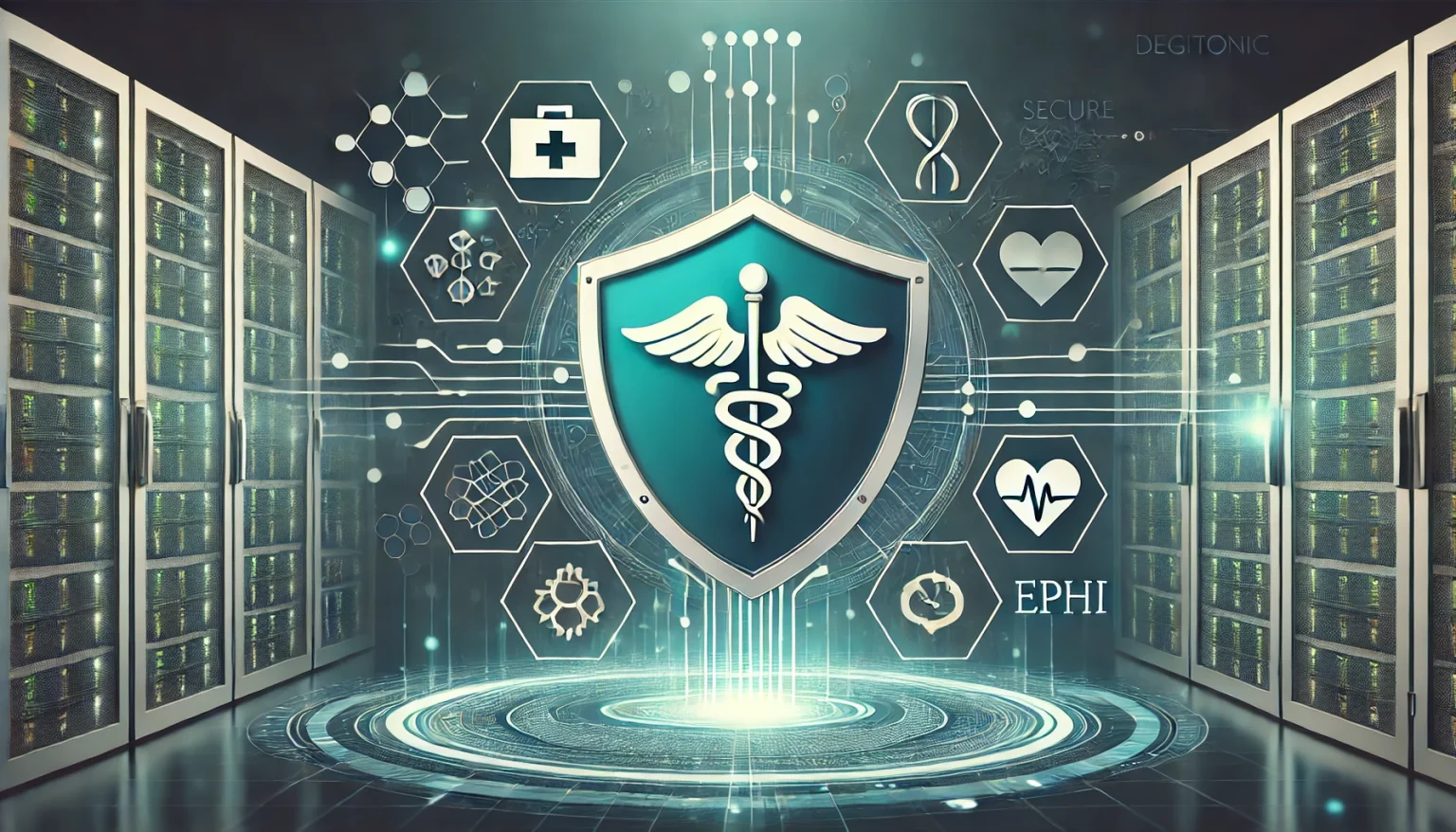
As cyber threats evolve, healthcare organizations must stay ahead of the curve by implementing advanced cybersecurity measures. Not only do these measures ensure compliance with HIPAA, but they also protect the integrity of electronic health records (EHR) and meet Centers for Medicare & Medicaid Services (CMS) regulations. Failure to do so can result in hefty fines, compromised patient trust, and severe damage to an organization’s reputation.
In this blog, we will explore best practices for securing electronic protected health information (ePHI), the role of EHR systems, CMS regulations’ impact on cybersecurity, and how healthcare organizations (HCOs) can fortify their defenses against modern cyber threats.
1. The Role of EHR in Healthcare Cybersecurity
Electronic Health Records (EHR) systems have transformed healthcare by improving patient care coordination, facilitating smoother transitions between providers, and enabling more accurate diagnoses. However, as healthcare organizations increasingly rely on EHR systems, the attack surface for cybercriminals has expanded. EHR systems are prime targets for hackers due to the vast amounts of sensitive patient information they hold.
Key Challenges in EHR Cybersecurity:
- Interoperability: As EHR systems interact with various external applications and healthcare partners, ensuring the security of these connections is critical.
- Data Security: The large amounts of ePHI stored within EHR systems pose an exponential risk that should be mitigated through access controls and encryption.
- Compliance: EHR systems must be compliant with HIPAA and CMS regulations, requiring robust security measures and regular risk assessments.
2. CMS Regulations and Their Impact on Cybersecurity
The Centers for Medicare & Medicaid Services (CMS) plays a significant role in shaping cybersecurity standards for healthcare organizations. While CMS primarily focuses on the quality of patient care, it also mandates that HCOs meet specific IT security and privacy requirements. Organizations that fail to comply with CMS regulations may face penalties, loss of Medicare and Medicaid reimbursements, and increased scrutiny during audits.
How CMS Regulations Influence Cybersecurity:
- CMS’ Quality Payment Program (QPP): This program emphasizes the importance of securing health data to meet value-based care standards. Healthcare organizations must demonstrate that they are following strict security protocols to protect patient information.
- Security Risk Analyses: CMS requires that HCOs conduct regular security risk analyses and implement appropriate security measures to prevent data breaches.
- Certification for EHR Systems: CMS certifies EHR systems based on their ability to meet strict data security and privacy standards, which align with HIPAA requirements. Ensuring that EHR vendors are compliant with CMS regulations is crucial for healthcare organizations to remain secure.
3. The Intersection of Cybersecurity and Healthcare Organizations (HCOs)
Healthcare organizations face unique challenges when it comes to cybersecurity. Unlike other industries, HCOs must balance the demands of patient care with stringent privacy regulations. Cybersecurity threats in the healthcare sector are increasing in both frequency and sophistication, making it vital for organizations to adopt a multi-layered security approach.
Key Cybersecurity Threats for HCOs:
- Ransomware: Cybercriminals frequently target healthcare organizations with ransomware attacks, holding sensitive patient data hostage in exchange for payment.
- Insider Threats: Whether due to negligence or malicious intent, insider threats—such as employees improperly accessing or sharing ePHI—are a significant concern for HCOs.
- Third-Party Risks: HCOs often work with various vendors and partners, and each connection poses a potential security risk. It’s essential to ensure that third-party partners comply with cybersecurity standards.
Best Practices for HCO Cybersecurity:
- Comprehensive Encryption: Encrypt ePHI both in transit and at rest to prevent unauthorized access to patient data.
- Advanced Threat Detection Systems: Deploy artificial intelligence (AI) and machine learning (ML)-driven threat detection systems to identify and respond to potential cyber threats in real time.
- Secure Remote Access: Ensure all remote access to HCO networks is through secure Virtual Private Networks (VPNs) with multifactor authentication (MFA).
- Employee Training: Regular cybersecurity training for staff can mitigate the risks associated with phishing attacks and insider threats.
4. Advanced Technologies to Stay HIPAA and CMS Compliant
Healthcare organizations must adopt advanced cybersecurity technologies to meet both HIPAA and CMS requirements. These technologies are designed not only to prevent data breaches but also to improve compliance with government regulations.
Cutting-Edge Cybersecurity Solutions:
- Security Information and Event Management (SIEM): SIEM systems provide real-time analysis of security alerts generated by applications, network hardware, and firewalls, ensuring rapid detection of potential breaches.
- Next-Generation Firewalls (NGFWs): NGFWs offer deep packet inspection and can block sophisticated malware and other threats that traditional firewalls miss.
- AI-Driven Threat Intelligence: AI and ML can automatically detect and respond to potential threats before they escalate, improving overall system security and reducing the risk of data breaches.
Systech MSP: Your Trusted Partner in Healthcare Cybersecurity
At Systech MSP, we understand the unique cybersecurity challenges faced by healthcare organizations. Our tailored solutions are designed to not only keep you compliant with HIPAA and CMS regulations but also to provide comprehensive protection for your EHR systems and ePHI.
Why Choose Systech MSP?
- Expertise in Healthcare IT Security: We specialize in advanced threat detection, risk assessments, and cybersecurity technologies tailored to healthcare organizations.
- Compliance Assurance: Systech MSP will help you become and stay compliant with both HIPAA and CMS requirements by deploying policies, regularly conducting security audits, ensuring your systems are up to date, and managing your organizational risk.
- 24/7 Monitoring and Support: Our dedicated team of cybersecurity experts monitors your systems around the clock, ensuring rapid response to potential threats.
- Proven Track Record: With years of experience in healthcare IT, we are trusted by healthcare providers to secure their networks and protect their patients’ sensitive information.
Stay ahead of cyber threats and remain compliant with HIPAA and CMS regulations. Contact Systech MSP today for a comprehensive cybersecurity consultation tailored to your healthcare organization’s needs.
